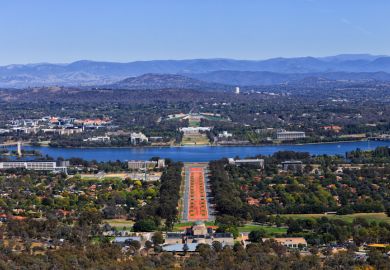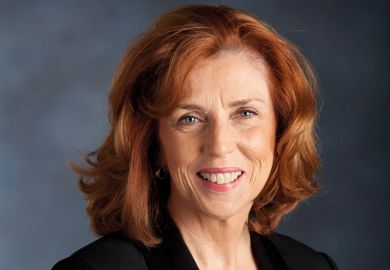International academics and university leaders in Australia will now be eligible for four-year visas with a pathway to permanent residency under amendments to the government’s immigration reforms.
In April, Australia’s prime minister, Malcolm Turnbull, announced that a four-year visa programme for temporary foreign workers would be scrapped and replaced by a more restrictive system issuing visas lasting two or four years.
For the shorter visa, it was announced that more than 200 occupations – including biochemist, geophysicist, historian and life scientist – would be removed from an existing list of about 650 eligible professions. It had been suggested that the list for the longer visa would be even stricter.
But the government has now said that it will relax the restrictions, which were opposed by universities and seen as a sign of a global trend towards “more contested and problematic” academic mobility.
University lecturers, vice-chancellors and faculty heads, along with several scientific and technical occupations, will be restored to a skilled migration list, meaning that they will be eligible for four-year visas with a pathway to permanent residency.
Meanwhile, Universities Australia said that the government has given it a commitment that time studying towards a PhD will be counted as work experience for the purposes of applying for a new skilled visa.
However, “university tutor” has been removed from all occupation lists for skilled visa eligibility.
Steve Chapman, the UK-born vice-chancellor of Edith Cowan University, recently told The Australian that he would need to leave Australia in June 2020 because of the visa changes. The reforms had meant that he would have been able to renew his current visa for only two more years, with no hope of getting permanent residency.
Belinda Robinson, chief executive of Universities Australia, said that the changes send an “important signal of reassurance to an estimated 3,000 researchers and university staff on current 457 visas who had faced an uncertain future”.
“The global community of university lecturers and researchers is a highly mobile one,” she said. “Australia needs policy settings that allow us to remain competitive, and ensure that we are able to snap up the best global talent to work alongside our brilliant home-grown researchers.”
However, Ms Robinson expressed concern about a proposal that would require universities to contribute to a new trades training levy when they bring overseas researchers into Australia.
Meanwhile, opposition continues to grow to the government’s proposed A$1 billion (£592 million) cuts to university funding.
In its submission on the legislation, Universities Australia said that the majority of its members oppose the bill in its entirety and warned that the cuts would force job losses, erode student support services and weaken universities.
Register to continue
Why register?
- Registration is free and only takes a moment
- Once registered, you can read 3 articles a month
- Sign up for our newsletter
Subscribe
Or subscribe for unlimited access to:
- Unlimited access to news, views, insights & reviews
- Digital editions
- Digital access to THE’s university and college rankings analysis
Already registered or a current subscriber?








